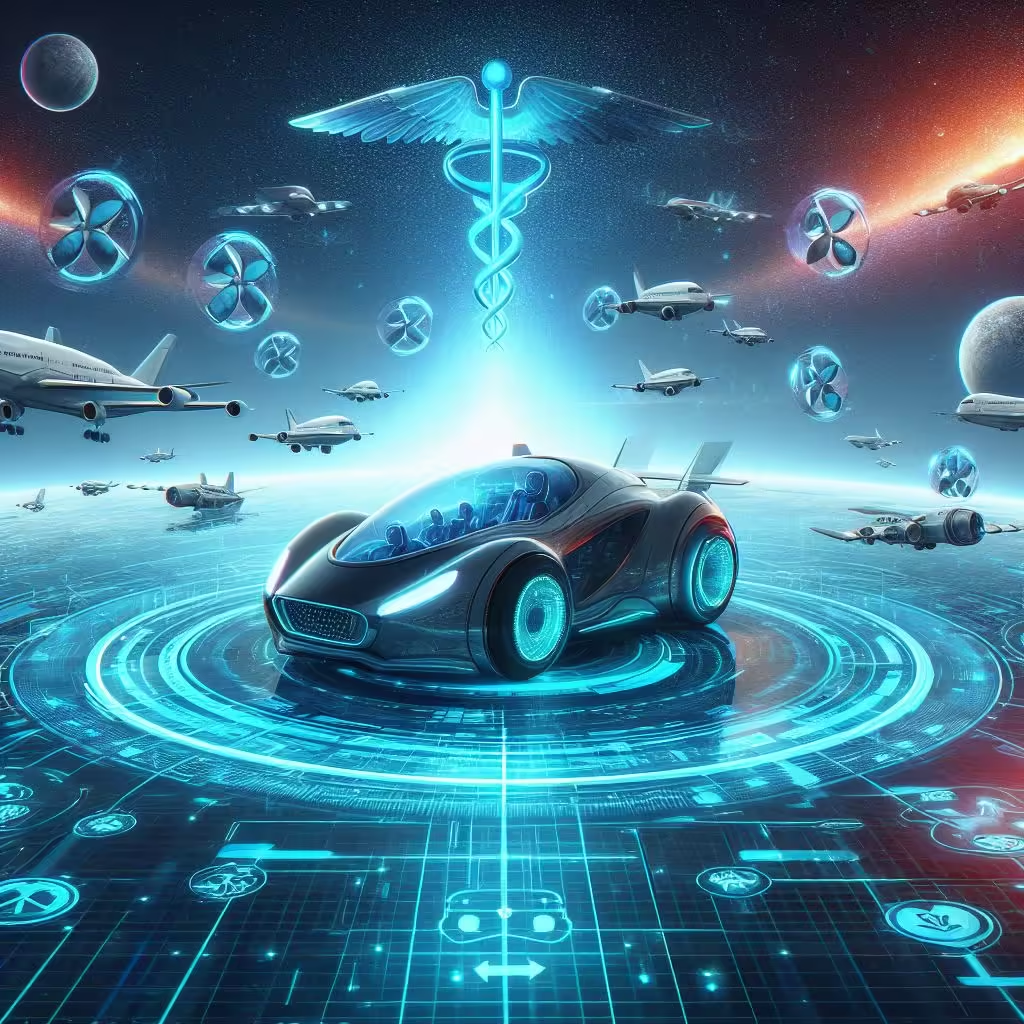The Future of AI: Exploring Beyond the Horizon
Artificial Intelligence (AI) has come a long way in recent years, transforming various industries and revolutionizing the way we live and work. But what lies beyond the horizon for AI? Let’s delve into the future possibilities of this cutting-edge technology.

1. Enhanced Automation
As AI continues to evolve, we can expect even greater levels of automation in various sectors. From self-driving cars to smart homes, AI-powered systems will become more efficient and capable of handling complex tasks. This will not only streamline processes but also improve productivity and convenience for individuals and businesses alike.
2. Personalized Experiences
AI has already started to personalize our online experiences, but the future holds even more possibilities. With advancements in machine learning and natural language processing, AI will be able to understand our preferences and tailor recommendations accordingly. From personalized shopping suggestions to customized healthcare plans, AI will make our lives more personalized and efficient. The Evolution and Impact of Artificial Intelligence
3. Ethical Considerations
As AI becomes more integrated into our daily lives, ethical considerations will become increasingly important. Questions around data privacy, bias in algorithms, and the impact on jobs will need to be addressed. It will be crucial to ensure that AI is developed and used responsibly, with proper regulations and guidelines in place.
In conclusion, the future of AI is full of exciting possibilities. Enhanced automation, personalized experiences, and ethical considerations will shape the way AI evolves and impacts our lives. As we navigate this uncharted territory, it is important to embrace the potential of AI while also being mindful of its implications. The journey beyond the horizon is just beginning, and the future of AI is waiting to be explored.

Ethical AI: As AI becomes more pervasive, ensuring ethical use and accountability will be paramount. There will be increased focus on developing AI systems that are fair, transparent, and unbiased, with robust mechanisms for addressing potential harms and biases.
- AI in Healthcare: AI will revolutionize healthcare by enabling personalized medicine, early disease detection, and more accurate diagnostics. AI-driven tools will assist healthcare professionals in making faster and more informed decisions, ultimately improving patient outcomes.
- Autonomous Systems: Autonomous vehicles, drones, and robots will become commonplace, transforming industries such as transportation, logistics, and manufacturing. These systems will enhance efficiency, safety, and productivity while also raising questions about regulation and safety standards.
- AI in Education: AI will personalize learning experiences, adapting to each student’s pace, preferences, and learning style. It will provide educators with valuable insights into student performance and help tailor instructional content to maximize learning outcomes.
- AI and Sustainability: AI technologies will play a crucial role in addressing global challenges such as climate change, resource management, and environmental conservation. From optimizing energy usage to predicting natural disasters, AI will contribute to building a more sustainable future.
- Continual Advancements: The field of AI will continue to evolve rapidly, driven by breakthroughs in research, computing power, and data availability. New paradigms such as quantum computing and neuromorphic computing may further expand the capabilities of AI systems.
- Ethical and Regulatory Frameworks: Society will grapple with the ethical implications of AI, including concerns about privacy, surveillance, job displacement, and algorithmic discrimination. Governments and organizations will need to establish robust regulatory frameworks to govern the development, deployment, and use of AI technologies.
- Unforeseen Developments: While we can anticipate many potential applications and impacts of AI, there will also be unexpected developments and challenges that arise. Flexibility, adaptability, and responsible stewardship will be essential as we navigate the evolving landscape of AI.
Overall, the future of AI holds immense promise, but it also requires careful consideration of ethical, social, and regulatory factors to ensure that AI technologies are developed and deployed in a manner that benefits humanity as a whole.

